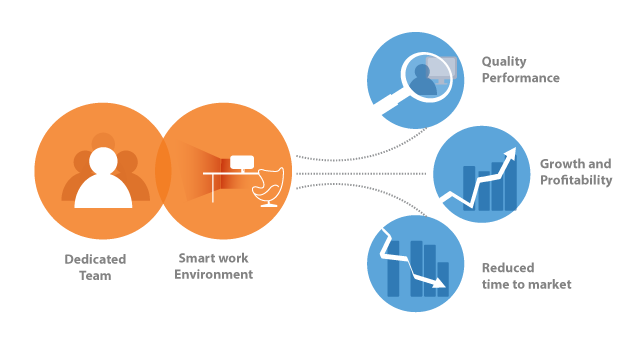Cost savings
There are different aspects of software development that can be outsourced to an offshore company including testing, web design and programming. Offshoring’s main driver is a reduced cost and a shift in focus for internal staff (i.e. the onshore entity no longer needs to maintain the staff tasked with the outsourced service) and is more prominent in larger companies that already have foreign dealings.
The cost savings associated with a business offshoring its software development is attributed to the software engineers outside of the developed countries being compensated less than their counterparts in developed countries, as well as the reduction in their own software staffing requirements thus reducing operating costs. If the offshore company has begun adopting the new wave of changes in the Software industry then miscommunications are at a lower risk as the agile methodology compensates with frequent meetings and a focus on integrated teamwork.
Obstacles
Offshoring can have some adverse effects including negatively affecting company morale. If employees feel their jobs are threatened then transparency of management and integration of existing staff with offshore developer is a key factor in reducing this risk. Other obstacles should be weighed up before engaging the offshore developer including.
· Language barriers can cause hiccups in the software development process if business requirements or
other crucial bits of information are misunderstood. The trend towards the teamwork oriented agile
work management has assisted in reducing this risk.
· Time-zone differences pose the biggest threat to agile work management and require more flexibility in
all stakeholders to make time for each other as their work days may not overlap.
· Cultural clashes can also cause a rift in the relationship, a good example being the existence of a strong
labour union presence in the software service sector which may result in lower productivity in the
offshore vendor.
· Testing can be more difficult and time consuming as the offshore company does not have direct access
to the consumers ICT infrastructure to test their solution in the live environment.
Security concerns
The biggest deterrent to choosing offshore software development is the potential security concerns that may arise, with these issues not always completely explored prior to contracting the offshore development.
Protecting intellectual property and sensitive data is a big concern for companies especially because each
countries national law may vary where intellectual property and the protection of sensitive data is concerned.
The onshore company must also bear in mind that the security measures may be less than sufficient in the
offshore entity meaning if they are in possession of sensitive material they are an access point for that materialto become compromised. Network complexities can become more onerous when trying to manage network configurations when an offshore development centre is added. Offshore providers need to ensure they isolate the networks connected between each of their client’s systems, as this can be a security vulnerability.
The ATO may benefit from offshoring, however due diligence must be done prior to contracting out software development services. It is recommended the ATO intensely research the IP laws, cultural difference and the local labour environment in the offshore country. Agile work methodologies could be adopted to make this option more viable.





Leave a Reply